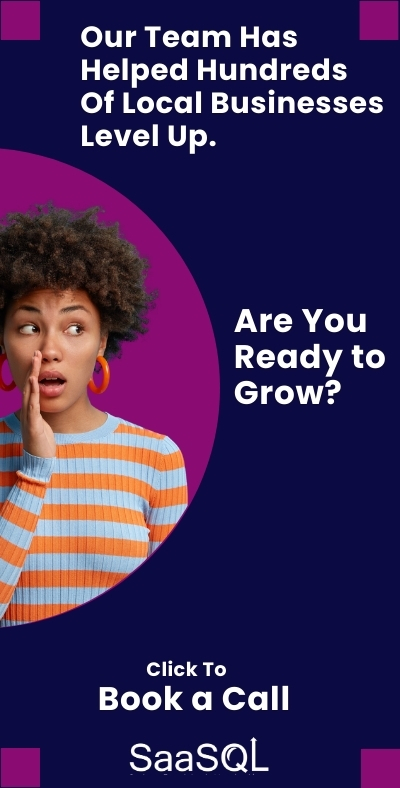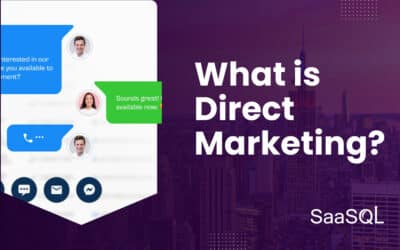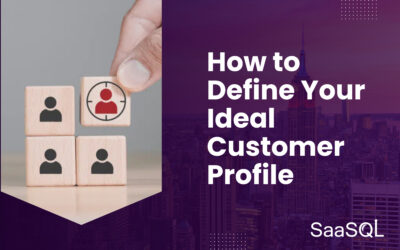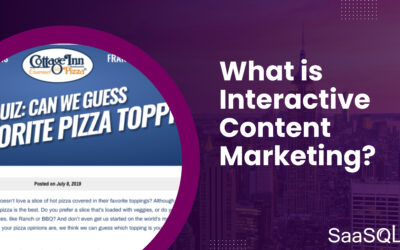Post-pandemic, it was difficult to know when, or if, we would see a return to the kind of in-person events that provided a foundation for local businesses to connect with their target audiences. However, with 65% of businesses (worldwide) reporting that they increased their spending on live events in 2023, it’s fair to say that Event Marketing should be a key area of focus in 2024.
As a result, this guide will serve as your roadmap to crafting a winning strategy that not only draws attention but secures attendance. Kicking off, we’re going to establish some SMART objectives, pinpoint our target audience, and delve into the digital arsenal at our disposal to magnify our message. You’ll learn how event marketing begins with an engaging website that acts as your event’s home base and why content marketing is key to keeping the buzz alive.

But it doesn’t stop there. Measuring success post-event reveals insights for future planning, while understanding different event types can boost brand visibility in ways you haven’t imagined yet. Are you geared up for practical measures guaranteed to ensure your event marketing delivers tangible outcomes? Keep reading.
Table Of Contents:
- Crafting Your Event Marketing Strategy
- In-Person Events That Make an Impact
- Leveraging Digital Tools for Event Promotion
- Building an Engaging Event Website
- Maximizing Engagement Through Content Marketing
- Analyzing Event Success & ROI
- Unlocking New Opportunities Through Networking
- Wrapping Up
Crafting Your Event Marketing Strategy
Forging a robust strategy for event marketing is key to captivating the people you aim to reach and hitting your business objectives. Designing an event isn’t merely about the day itself; it’s weaving together moments that linger in people’s minds, well beyond when the final applause fades.
Setting SMART Goals for Your Event
Kicking off a memorable gathering hinges on laying down straightforward, attainable targets. Whether your event marketing plan aims to boost brand awareness or drive sales, setting Specific, Measurable, Achievable, Relevant, and Time-bound (SMART) goals lays the groundwork for everything that follows. Remember that 95% of marketers believe in-person events significantly impact company objectives—making goal-setting even more vital.
To make sure your efforts aren’t wasted on metrics that don’t matter to your bottom line, tailor these goals closely around what success looks like specifically for your brand.
Focusing on Business Goals Alignment
Every smart event marketing plan aligns closely with overarching business goals—whether that’s boosting brand awareness or generating leads. To accurately assess ROI, compare pre-event objectives against actual outcomes such as lead generation numbers or direct sales tied back to the event.
By juxtaposing the anticipated outcomes with the actual achievements, this evaluation not only unveils concrete successes but also sheds light on potential enhancements for upcoming tactical approaches. Keep these insights handy for planning more impactful events down the line.
In-Person Events That Make an Impact
The allure of face-to-face gatherings lies in their unique ability to weave enchantment, far surpassing the grasp of digital meet-ups. Offering a rich, tangible atmosphere that digital meet-ups fall short of, they foster profound bonds with attendees. From launch parties to conferences, these face-to-face meetings are not just about promoting products; they’re about storytelling and building relationships.
An overwhelming majority of marketers, clocking in at 95%, are convinced that these engagements play a pivotal role in meeting organizational objectives, particularly in the realm of elevating brand visibility.
To make sure you’re hitting the mark with your event marketing strategy, start by identifying your target demographic. Knowing who you want at your event is half the battle won. Then move on to planning early bird specials or VIP experiences that’ll get potential attendees buzzing with excitement long before the big day arrives.
Identifying Your Event Marketing Target Audience
Kicking off any event marketing plan without knowing who you’re talking to is like shooting arrows in the dark—you might hit something by accident but it won’t likely be your target. Diving deep into understanding who will benefit most from attending can transform potential attendees into loyal fans of your brand. This approach not only ensures higher attendance rates but also fosters an environment where participants feel genuinely valued and understood.
Leveraging Digital Tools for Event Promotion
Email marketing and social media are your ace cards in the deck of digital promotion tools. With 39% of marketers swearing by email marketing’s effectiveness, it’s not just about sending out invites but creating anticipation and excitement.
The Power of Email For Event Marketing
An effective email list is gold, allowing you to directly communicate with potential attendees. Segment your email list to send personalized messages to different groups, such as past attendees, VIPs, or those who have shown interest but haven’t yet purchased tickets. Include compelling subject lines, attractive graphics, and a clear call-to-action. Include early bird offers or exclusive sneak peeks into the event schedule to make them hit that register button faster than lightning.
Reminding attendees isn’t nagging; it’s caring. A gentle nudge about what they’ll miss if they don’t attend can work wonders in boosting ticket sales.
Social Media Event Marketing Mastery
Social media isn’t just where we kill some time; it’s where magic happens for event marketing, too. A staggering 73% use platforms like Twitter and Instagram to shout from virtual rooftops about their events. Create engaging content that resonates with your target audience and watch as people share your event within their circles, multiplying reach exponentially. Digital content on these platforms transforms passive viewers into active participants even before the event starts—think teasers, live Q&As, or behind-the-scenes looks at preparation stages.
Choosing Your Event Marketing Social Channels
- Facebook: Ideal for creating event pages, sharing updates, and using targeted ads. Facebook’s event pages allow for RSVPs and can give you an idea of attendance numbers.
- Instagram: Perfect for visual storytelling. Use high-quality images and videos, stories, and live sessions to showcase your event. Instagram’s features like countdown stickers, swipe-up links (for accounts that qualify), and interactive polls can be highly engaging.
- Twitter: Great for real-time updates, engaging with attendees via hashtags, and conducting Q&A sessions.
- LinkedIn: Especially useful for professional and industry-related events. Share articles related to your event theme, post updates, and use LinkedIn Groups to reach interested attendees.
Focus on engaging with your target audience in compelling ways that are both interesting and interactive. Some examples include:
- Polls and Surveys: Use social media polls and surveys to engage your audience and gather feedback on what they’d like to see at the event.
- Contests and Giveaways: Run contests for free tickets or other perks related to your event. This can increase engagement and spread awareness.
- User-Generated Content: Encourage attendees to share their own content related to your event with the event hashtag. You can feature this content on your own social media channels, which not only provides you with free content but also increases attendee engagement.
By focusing on these specific tactics, you can leverage social media effectively to create buzz, engage with potential attendees, and ultimately drive attendance for your event.
Building an Engaging Event Website
Your event’s website acts as the pulsating core of its online existence, captivating potential guests with your vision from their very first visit. With every click and scroll, you’re setting the stage for their experience.
First up, when it comes to comes to building powerful website landing pages, nail down that event content. Think about it: when people land on your site, they’re looking for specifics—what’s happening, where it is, and why they should care. Your job? Feed them this info in bites that are easy to digest but hard to forget. Remember those stats we love? A whopping 98% of consumers say they create digital content at events. It signifies that individuals are not merely present but actively participating and broadcasting their adventures on the web.
To make sure you don’t lose steam after launch day, keep updating with fresh content leading up to the big day—and beyond. Blogs detailing speaker insights or behind-the-scenes peeks can maintain interest and momentum among prospective customers long before (and after) doors open.
Maximizing Engagement Through Content Marketing
As a core component of event marketing, utilizing content marketing strategies to create a buzz around your event will keep attendees informed and excited.
Create and share valuable content related to your event theme. This could include blog posts, infographics, videos, or podcasts that provide insights or entertainment related to your event’s focus. Content marketing can help establish your event as a thought leader in its niche and keep your audience engaged leading up to the event.
Here are some effective ways using content marketing as a key component of your event marketing strategy can be transformative:
- Educational Content: Create blog posts that offer valuable information related to your event’s theme. For example, if you’re organizing a digital marketing conference, you could write posts about the latest trends in digital marketing, how-to guides, or case studies.
- Speaker Interviews: Feature interviews with your event’s speakers or performers. This not only provides interesting content for your audience but also helps to highlight the expertise and value that your event will offer.
- Guest Blogging: Invite speakers, industry experts, or influencers to contribute guest posts to your blog. This can help you tap into their audience and bring new visitors to your event page.
- Create infographics that summarize key points or statistics related to your event’s topic. Visual content is more shareable on social media and can help to quickly convey the value of your event. Use visual storytelling through a series of related images, charts, or even comic strips that tie into your event’s theme.
Ultimately, content marketing has the power to engage your audience, build anticipation, and provide unique value related to your event.
Analyzing Event Success & ROI
After the last guest leaves, it’s time to crunch numbers and measure how well your event performed. But where do you start? Let’s dive into the essentials of evaluating event success and calculating your marketing ROI (return on investment)
Measuring Success Event Marketing Plan Through Engagement Metrics
Determining an event’s triumph hinges on the level of participant interaction. Astonishingly, 98% of consumers generate digital content at events, which speaks volumes about engagement levels. This can range from social media posts to live tweets or Instagram stories shared during the event itself.
To track this effectively, monitor hashtags related to your event across platforms and use analytics tools to gauge reach and interaction rates. Keep in mind, engaging your audience with top-notch content usually leads to increased recognition and fidelity towards your brand from the people you’re trying to reach.
The excitement we feel as event planners, successfully orchestrating a memorable occasion, is unparalleled. Yet, how do we pivot to mapping out the events yet to unfold? This is where strategy meets anticipation. Let’s dive into how you can set your sights on upcoming successes.
Unlocking New Opportunities Through Networking
Networking at events is like unlocking a treasure chest of opportunities. Networking transcends mere card exchanges; it cultivates connections ripe for future partnerships or glimpses into evolving market currents.
HeyEvent suggests that engaging in meaningful conversations and showing genuine interest in others’ work can significantly boost your networking success. Aim to forge enduring bonds, rather than merely expanding your roster of acquaintances.
Embarking on networking ventures, aim to clearly define your aspirations, whether it’s scouting for prospective clients or partners, or merely accumulating insights into the market. Then actively listen and ask thoughtful questions during interactions. This approach demonstrates respect for others’ expertise and fosters mutual trust.
Last but not least, follow up after the event with personalized messages expressing gratitude for the interaction and proposing ways to stay connected or collaborate in the future. These actions lay the foundation for budding connections and pave the way for unforeseen chances in times to come.
Wrapping Up
As we focus on engaging with our target audiences, in-person events are quickly returning to their role as one of the most impactful ways to build real connections. In this overview, we’ve journeyed through the essentials of event marketing, touching on some of the techniques that will help ensure you’re participation at local events is a success. Let’s nail down what sticks.
Start with goals that are SMART. Remember, clarity is king in event planning and execution.
Identify your crowd. Knowing who will attend shapes everything from promo to party time.
Digital tools? Digital platforms are your top allies in broadcasting your message across the horizon.
An engaging website acts as your base camp; it’s where interest turns into action.
Create buzz with content that keeps folks talking before, during, and after the event.
And finally, measure what mattered. It guides your next steps toward even greater successes.
With patience and strategy, mastering event marketing becomes part of your playbook—a game changer in how you connect, engage, and succeed in any venture ahead.
*To learn more click the link to read our comprehensive overview of other low cost marketing tactics.











